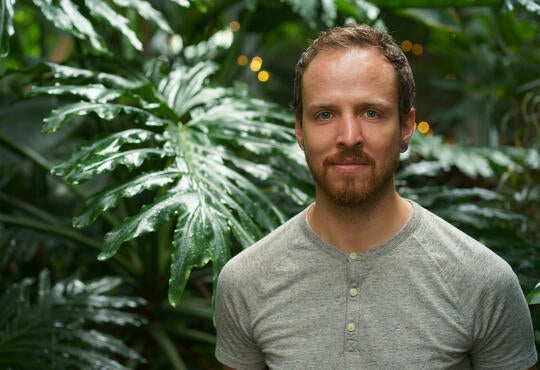When she arrived for her first year of studies at the University of Waterloo, Ebele Mogo (BSc ’09) was just 14 years old and already a top science student in her home country of Nigeria.
She settled into her residence in Village 1 as an international student, studying biomedical sciences with the goal of becoming a doctor. While quickly adjusting to her new life, Mogo also encountered challenges: the cold climate, missing loved ones and adjusting to a new culture and different academic testing approach. After searching the internet during reading week, she came across the field of global health and decided that after becoming a doctor, she would move into that field.
Mogo persevered and eventually thrived, including making it to the Deans’ List, but when she graduated she wasn’t accepted to any medical schools. “That was very painful for me because I had worked so hard. I felt like I had to go back to the drawing board.”

Ebele Mogo (BSc ’09)
She soon found that global health gave her the opportunity to change health problems on a larger scale. Rather than continuing to pursue medicine she decided this pivot would give her the best chance of making the kind of impact she wanted to make.
Watch Ebele Mogo explain how the Engage Africa Foundation is translating coronavirus information into 19 African languages
Making an impact on health across Africa
In graduate school, Mogo noticed that discussions about African health focused almost exclusively on infectious diseases like HIV. Having grown up in Nigeria, Mogo understood the toll that hypertension, diabetes, cancer and other chronic diseases were having on the continent.
Today Mogo is a public health researcher at University of Cambridge in the U.K., the president of her own firm ERIM Consulting, and co-founder of Engage Africa Foundation, a non-profit organization that fights non-communicable diseases in Africa, including heart disease and diabetes.
With so much volatility in the world right now, Mogo advises young people to examine their expectations and seek informational interviews with people who are doing the kind of work they would like to do.
“A lot of people who go to Waterloo are high achievers but they are going out into a world that is very different,” Mogo said. “It is not the world they had in mind when they set out.” Reflecting on her own path, Mogo also encourages students to be willing to iterate their way toward a career that aligns their values and lived experiences – including through failure.
Her passion for improving health through systemic, structural change has proven valuable in the current COVID-19 pandemic as people with underlying illnesses like diabetes are getting sicker and more likely to die. In an effort to stem the pandemic and save lives the Engage Africa Foundation has crowdsourced translations of COVID-19 health information, disseminating the material in 19 African languages.
Future-Ready Talent Framework

Biology Professor Roland Hall enlightened Ebele Mogo about ecological issues and offered Mogo her first on-campus job







